Archive
10 December 2019
Combination of microscopy techniques makes images twice as sharp
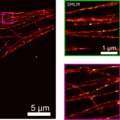
Researchers at Delft University of Technology have combined two existing super-resolution microscopy techniques to create a new method. Many experts thought that combining these techniques was not technically possible. The new, combined method enables researchers to visualize the tiny components of living cells better than ever before. Among other things, this can lead to new insights for healthcare.
09 December 2019
A boost for head and neck proton therapy research
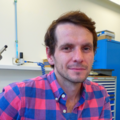
05 December 2019
Young Talent Prizes for students AS
Every year in November the KHMV, the oldest "learned society" in the Netherlands, awards the Young Talent Prizes. Students of technical and exact study programmes are awarded various graduation and encouragement prizes. Read on for an overview of the winners of Applied Sciences for this year.
03 December 2019
All Pilsner yeast strains originate from a single yeast ancestor
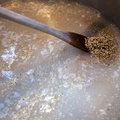
Pilsner yeast, the well-known micro-organism that brewers use every year to make hundreds of billions of litres of pilsner and other lagers, came into being 500 years ago through an accidental encounter between two species of yeast. The yeast strains now used to brew pilsner can all be traced back to that time. This is the conclusion reached by TU Delft researchers based on extensive DNA analysis.
25 November 2019
Mark van Loosdrecht elected as member of the Chinese Academy of Engineering

The Chinese Academy of Engineering (CEA) has announced that it has elected Mark van Loosdrecht, Professor of Environmental Biotechnology, as a member.
21 November 2019
Seven TU Delft researchers on 2019 Highly Cited Researchers list
Clarivate has published its annual list of Highly Cited Researchers. On this list, the names of the most cited researchers in a certain field (or cross-field) can be found. This year, seven Delft researchers, or researchers who have a TU Delft affiliation, have been included.
19 November 2019
Building a Mars base with bacteria
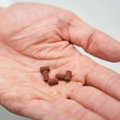
How do you make a base on Mars? Simple: you send some bacteria to the red planet and you let them mine iron.
18 November 2019
Tuning quantum materials with hydrogen gas
Researchers at TU Delft have discovered a method to stretch and compress quantum materials using hydrogen gas. They demonstrated this effect using a tiny string of a material called tungsten trioxide, which acts as a sponge for hydrogen. The research is a promising new step in the development of micromechanical resonators, which have a wide range of possible applications. They can be used in inkjet printers, as sensors for environmental conditions, and as active components in future nano-electronics.
15 November 2019
Researchers see rapidly hunting CRISPR system in action
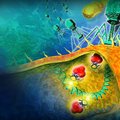
07 November 2019
Opening Industrial Catalysis Lab TU Delft
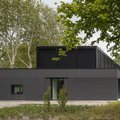
On 20 November 2019, TU Delft will open the Industrial Catalysis Lab, a new high-tech facility that makes it possible to carry out experiments under high pressure and at high temperatures. The lab forms a bridge between industry and the academic world, where experiments are usually carried out under lower pressure and at lower temperatures. In this building, researchers led by a new professor will develop innovations in the field of catalysis. Catalysis is a technology that accelerates chemical reactions and that forms the basis for many of our plastics, fuels and fertilizers.